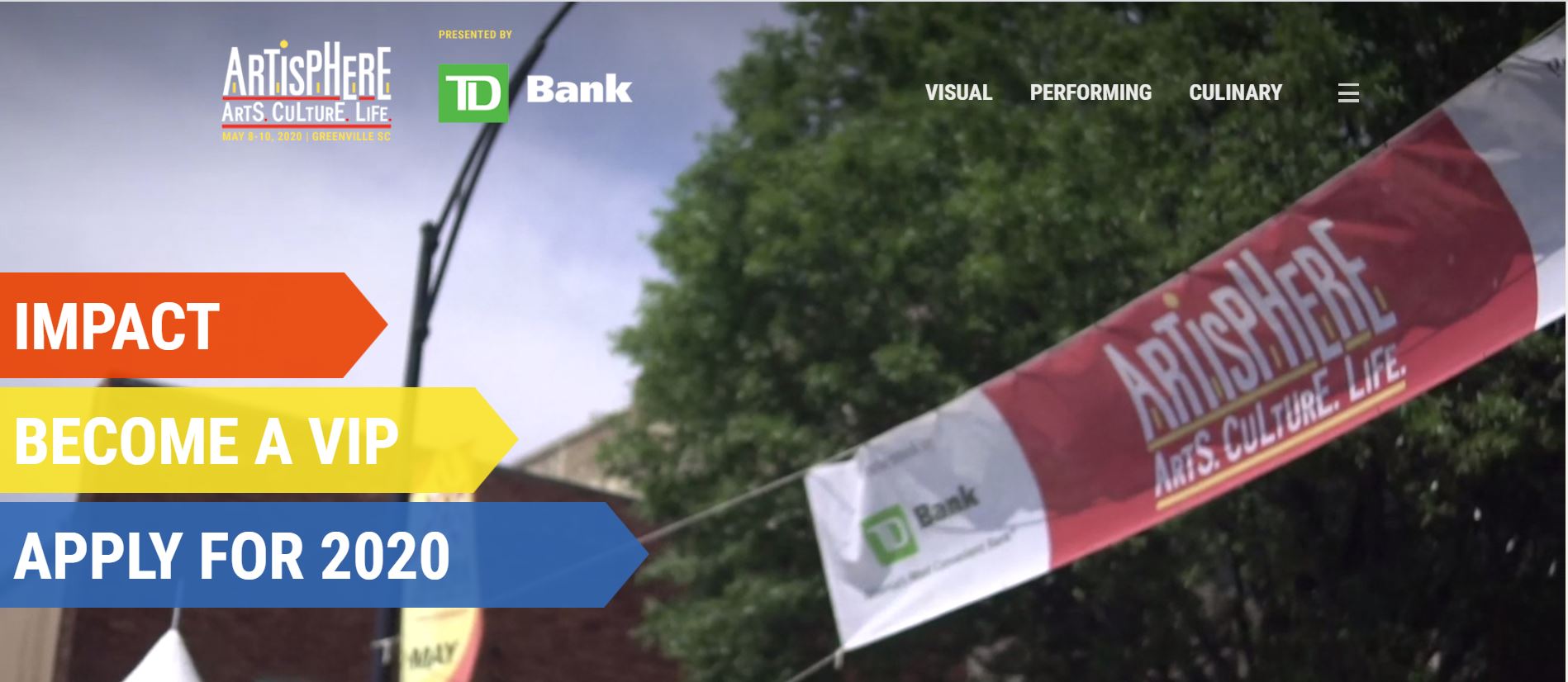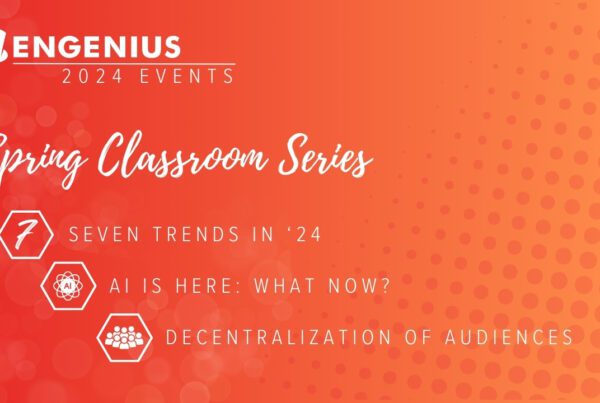Even if your event only happens once a year, marketing is always a priority. But how you market your event (and who you market to) should change throughout the year. One of the more nuanced parts of event marketing involves determining how your target audience changes in different seasons. And beyond that, how can you use the tools at your disposal to effectively market to those different segments?
Using Your Website as a Tool
If you operate a single weekend or week-long event, you should have three main marketing “seasons”: the pre-season, the event week or weekend, and the off-season.
Segmenting your marketing into different seasons allows you to focus on the different goals you have at different times of the year. You aren’t recruiting sponsors during the week of your event, nor do you need to promote the festival map one month after the event is over.
And your website, the base of all your marketing activities, should be at the center of these initiatives—updating messaging, images, and content, seasonally.
The Pre-Season
1 – 4 months prior to your event
The preseason is often filled with a flurry of buzz and excitement around your event. You generate this buzz to encourage ticket sales/registration.
Not only are you filling your social media feed with hype about the upcoming event, your website should be too. Visitors that are coming to your site want to know details about your event and how to attend.
Your website should reflect this. You’ll want to make sure you’ve got:
- The date and time prominently featured
- Schedule of events, lineup, speaker list, etc. easily accessible
- List of featured vendors
The last, and most important, thing you’ll need is to loudly and clearly ask people to attend. That might mean making the ‘purchase a ticket’ button large, and repeated throughout the website. If you don’t require ticket purchases, you still need to ask people to attend.
These things might seem obvious, but take a few moments and look at your website. How many clicks does it take for someone to find out what time your event is? If you sell tickets, is it immediately obvious how to do so? This information is obvious to you, but isn’t always as obvious to your attendees.
By prioritizing event details, you can also free up your time so you’re not receiving dozens of emails each day about easy-to-answer questions.
Event Week/Weekend
From the event start time through the day after
While your event is going on, you want to be sure all festival materials are front and center. People heading to your website during the event are looking for very specific information like:
- Where to park
- What they can and can’t bring in
- A map of the festival/event grounds
- Daily schedule
In addition to getting to the event successfully, you’ll want to put your event FAQs and festival rules front and center too.
You want to make it as easy as possible for your attendees to enjoy your event – and that starts with giving them the info they need quickly and easily.
During the event, there is a good chance the majority of people accessing your website for the above information will be on their mobile phones, so it’s crucial that all relevant information is mobile optimized.
Off-season
The day after your event through pre-season
Don’t let your marketing take a nosedive in the off-season. Have you ever gone to an event’s website a few weeks after the date has passed, and they still have all of the old information up? It’s a frustrating user experience.
Instead, take the off-season to thank attendees, secure sponsors and vendors, and build excitement for next year’s event. You can help generate buzz about your event by showcasing your economic or community impact and producing regular, engaging content (blogs, videos, press releases, etc.) that highlights how exciting your event is.
The off-season is also a prime time to find new sponsors and vendors/speakers/artists for next year. Use your website to focus on these two groups during this time.
How to Showcase Seasonal Information
Providing season information doesn’t mean creating a homepage filled with text. There are many ways to showcase this information in a user-friendly, design-friendly way.
Let’s take two examples: an art festival and a food and wine festival…
Use Your Hero Image Wisely
Your hero image is that ‘above the fold’ image users first see when they get to their website. Utilize that precious space for important seasonal goals. This allows the user not to have to scroll for information or look through your navigation for prime info.
Artisphere, an art festival, takes advantage of the off-season by showcasing their community impact, promoting their VIP ticket packages, and calling artists to apply for next year’s festival.
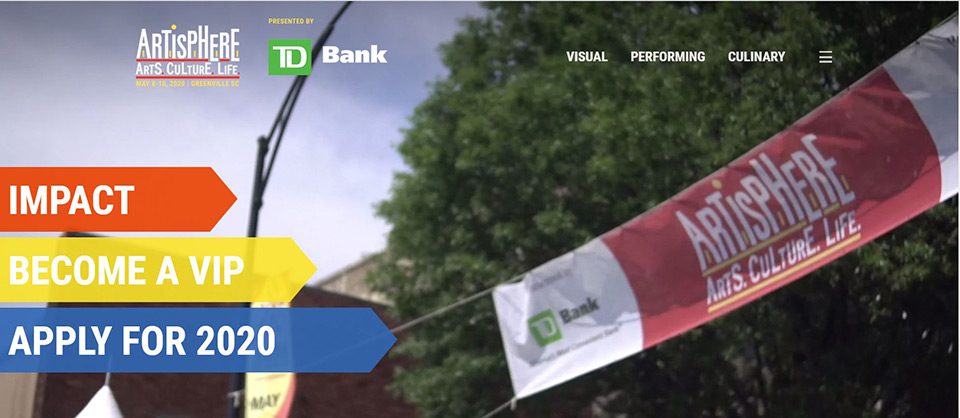
Displaying a recap video is another great way to take advantage of this area. If you don’t have access to videography, fresh photography from your most recent event will do.
Update Your Navigation
Your navigation is prime real estate. The links you choose to put there tell users what are the most important parts of your website. So why not update those seasonally?
euphoria, a food, wine, and music festival updates their navigation seasonally.
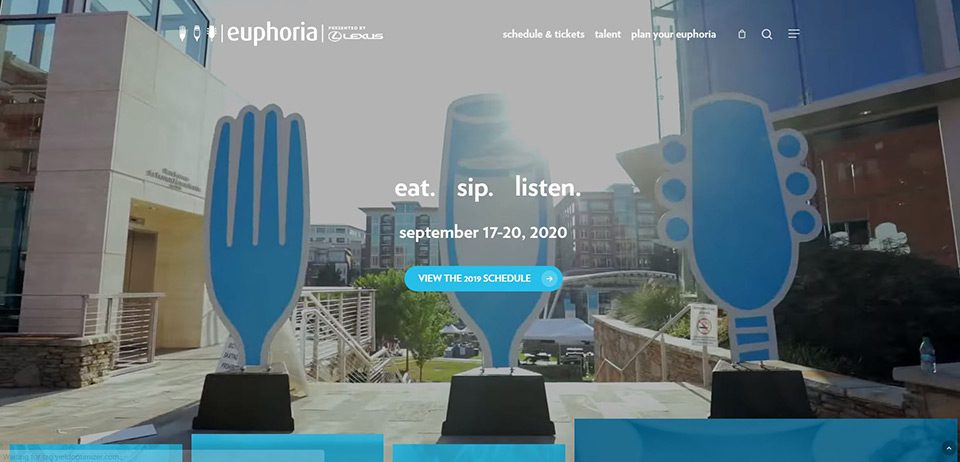
During the weekend of their event, their main navigation holds only three things: schedule & tickets, talent, and plan your euphoria.
As a guest, these are the three most important items you need to have a great euphoria weekend.
However, during the off-season, users don’t need to see the talent, as they don’t yet have the new lineup ready. Instead, euphoria links to plan your euphoria, partners, and community impact.
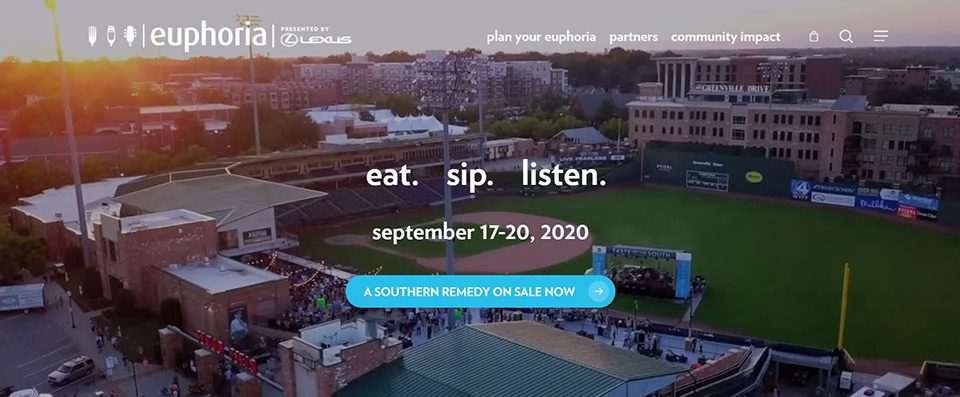
Sure, you could include every relevant page in your navigation year round – but there’s no reason to make your site visitors think. Guide them to the information they need most, and don’t overwhelm them.
Let Your Website Work for You
Seasonal event marketing really doesn’t have to be a big lift or another to-do item to check off your list. Spend a few hours going into each season planning out what tweaks you’ll make to your site to make the appropriate information more accessible for users.
Better yet, partner with a digital marketing agency that can do it right alongside you.
Start the Conversation
Interested in learning more about how to make your event website work for you?
